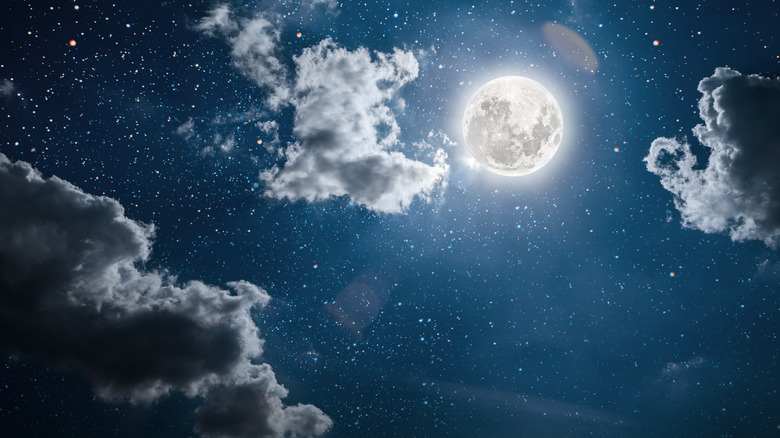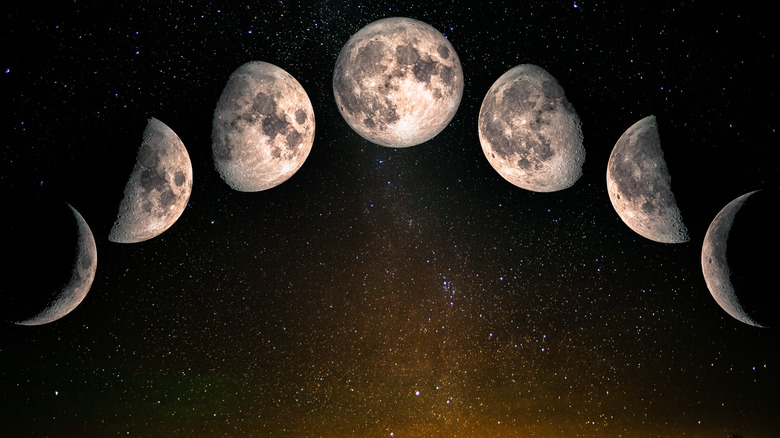Is There A Connection Between Full Moons And Criminal Activity?
There has long been a belief among police officers that full moons lead to strange behavior among the populace, and, as such, many prepare themselves for difficult encounters. "When something crazy or weird happens, I look up at the sky to see if the moon is full," Newport Beach police officer Bill Hume told the Orange Country Register. "The full moon seems to bring out the nightcrawlers — people who come out at weird hours and lurk around aimlessly. You know they're up to no good." The same source reports that police forces in the U.S. have been funding research into the phenomenon since the 1970s, with studies continuing up to the present day.
In 2019, a team of academics from Marron Institute of Urban Management at New York University (NYU) released their findings from a three-county study investigating the correlation between days when the moon is full and a potential increase in criminal activity. According to phys.com, one data set came from the police department at Vallejo, California, and covered the crime rate in the area from 2014-2018. However, the study found no compelling correlation between the full moon and crime, and that the phenomenon remains the stuff of anecdotal evidence.
"Although these kinds of analyses are fun, the findings have practical implications for policing such as in developing staffing assignments and distribution of other law-enforcement resources, said Dr. Angela Hawken, professor of public policy at the Marron Institute, who led the study. "The bottom line is be vigilant in questioning your assumptions and use your data to explore."
The moon's effect on humans
However, though no connection was found between the full moon and crime in this particular study, others have yielded thought-provoking results. According to The Guardian, a 2007 police investigation into crime in Sussex, England, and the lunar cycle saw a "trend" in which violent crime was more common around the time of the full moon, while a similar study among inmates in a British jail also revealed similar findings. The same source reveals that the belief in the "lunar effect" is not reserved simply for police, but also those who work in venues where people are drinking, such as nightclub security guards.
The same year that the study from NYU disproved the phenomenon, a BBC report expounded the evidence of lunar cycles' effect on the mood of American psychiatric patients — a potential precursor to criminal activity — arguing that just as the moon affects tidal change, its gravitational pull might well interfere with the water of the human body. The moon has long been believed to have a physiological effect on the human body, especially on "human reproduction, in particular fertility, menstruation, and birth rate," according to the academic Michal Zimecki, via the National Library of Medicine.

